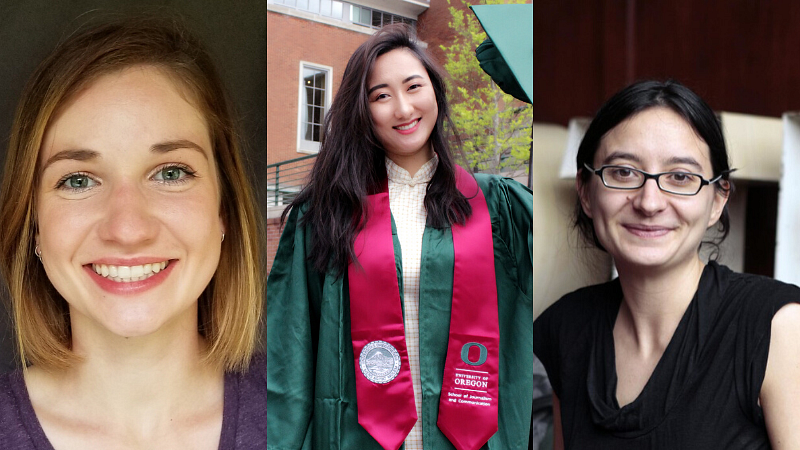
Three strategic communication master’s students — Alyson Morris, Hanna Neuschwander and Rui Zhao — won the 2020 Jack Koten Page Principles Case Study Award in corporate communications.
The trio’s award-winning project, "Dick's Sporting Goods Enters the Gun Debate: Revising the Playbook," examines the company's communication strategies around its 2019 decision to halt gun sales at 125 locations. Dick’s decided this after 17 people died in the Parkland, Florida, school shooting.
The students examined the company’s values, planning, crisis communications and how the decision affected the company’s bottom line. They started with research on the company’s original mission, actions after other high-profile gun massacres, evolving business strategy as high-profile gun deaths increased and media coverage after each decision.
Donna Davis, director of the strategic communications master’s program, said it had been her longstanding goal for a student team to be competitive in the Page Society competition.
She said Morris, Zhao and Neuschwander did top-quality work and deserved the accolades and the recognition from the Institute of Public Relations. They are the first team in UO history to place in the national contest and win the grand prize.
“I see each of these students as important voices in the future of communication leadership, as our field is tasked with helping key decisionmakers find innovative and ethical ways to help organizations thrive in challenging times,” said Davis.
The team was drawn to Dick’s case because they were interested in why the company’s leadership team took this stance and how they were able to stay true to their corporate values while keeping stockholders and many customers on board.
They approached the project with different personal and professional expertise, which they all agreed made their final product stronger.
Morris has an undergraduate degree in environmental science and experience with testing water quality in Montana. While working in the Midwest, she noticed her organization needed skilled communicators just as much as they need scientists. She often found herself slipping into the storytelling role.
She moved to Portland to take that skill to the next level in the UO strategic communication master’s program and propel her into communication jobs in the science or outdoor recreation fields.
“It was gratifying to win,” Morris said. “It kind of validated my decision to go back to school and change direction.”
Zhao, originally from Southern China, got hooked on strategic communication when she interned at a public relations agency in Shanghai. She began studying in the United States six years ago and is now en route to a master’s degree, with plans to start a corporate communication career.
“The project gave me the chance to offer a comprehensive analysis of how companies can take a stance on a social issue,” she said.
Neuschwander is already a full-time pro as the sole communicator for World Coffee Research, an agricultural research organization. She said graduate school allowed her to surround herself with new ideas, people passionate about communication and professional mentorship.
“The reason I came into this program is to get better at what I do,” she said. “I can’t learn from other people at work, so I’m here to learn from people grappling with the same challenges.”
The study also opened new possibilities for her.
“It changed the way I think about what’s possible for an organization to achieve if they have conviction for an issue,” she said.
Tina McCorkindale, president and CEO of the Institute for Public Relations, said the UO team’s work was “a very timely and relevant case that demonstrates how values-driven leadership is essential to a company as it navigates charged political arenas.”
— By Tim Trainor, School of Journalism and Communication
